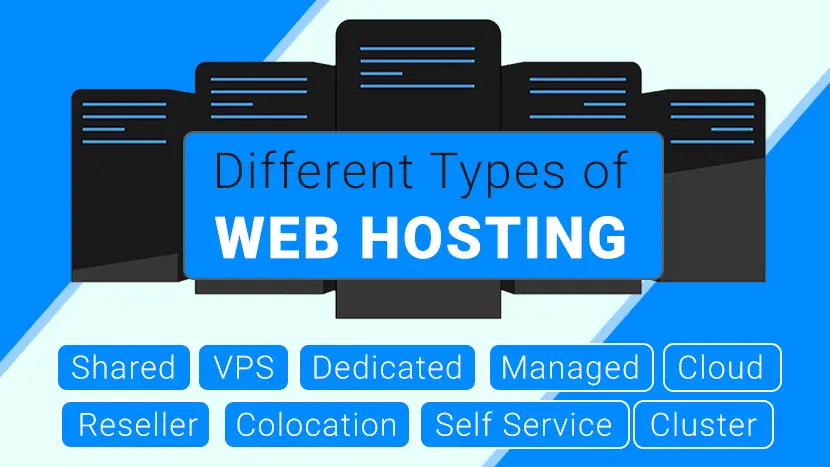
There are different types of web hosting services. So, it can be very difficult to figure out which type of web hosting you need or choose.
In the article, I hope to teach you everything you need to know about web hosting. There are many kinds of web hosting. I can easily see how people get confused so quickly. I will cover the following:
- Shared Hosting — Shared hosting is the most cost-effective plan for entry-level websites.
- VPS Hosting — VPS hosting is for websites that have outgrown shared hosting.
- WordPress Hosting — WordPress hosting optimized for WordPress sites.
- Dedicated Hosting — Dedicated hosting is Enterprise-level servers for large websites.
- Cloud Hosting — Cloud hosting is best for websites that are growing rapidly.
- Reseller Hosting — Reseller hosting is for agencies, web developers, and web designers.
- Managed Hosting — Managed hosting is an IT hosting model in which the client leases servers or cloud computing resources.
- Colocation Hosting — Colocation hosting is where you rent space for your IT hardware at a 3rd party provider’s data center facility.
- Self Service Hosting — Self hosting is a form of running your own website or application by setting up a server and network yourself.
- Cluster Hosting — A Cluster hosting is a host that is configured to take over the role of another host server within a cluster.
Shared Hosting
Shared hosting is a type of web hosting where a single physical server hosts multiple sites. Many users utilize the resources on a single server, which keeps the costs low. Users each get a section of a server in which they can host their website files. Shared servers can host hundreds of users. Each customer using the shared hosting platform’s server has access to features like databases, monthly traffic, disk space, email accounts, FTP accounts and other add-ons offered by the host. System resources are shared on-demand by customers on the server, and each gets a percentage of everything from RAM and CPU, and other elements such as the single MySQL server, Apache server, and mail server.
VPS Hosting
VPS is short for a Virtual Private Server. VPS hosting is one of the most popular hosting services you can choose for your website. It uses virtualization technology to provide you with dedicated (private) resources on a server with multiple users.
It’s a more secure and stable solution than shared hosting where you don’t get a dedicated server space. However, it’s smaller-scale and cheaper than renting an entire server.
VPS hosting is usually chosen by website owners who have medium-level traffic that exceeds the limits of shared hosting plans but still don’t need the resources of a dedicated server.
WordPress Hosting
WordPress hosting is just hosting that has been optimized to better meet WordPress’ performance and security needs. It also typically includes one-click WordPress installs to make it easy to get started with WordPress. And some WordPress hosts will even automatically update your WordPress software as needed.
Dedicated Hosting
Dedicated hosting is a term used to describe web hosting packages that provide a dedicated server with dedicated resources to a single client. Dedicated hosting plans are ideal for WordPress websites with a very large number of visitors. Many WordPress hosting service providers offer Dedicated Hosting plans along with shared and VPS hosting plans.
Cloud Hosting
Cloud hosting is a type of web hosting which uses multiple different servers to balance the load and maximize uptime. Instead of using a single server, your website can tap into a “cluster” that uses resources from a centralized pool. This means that even if one server fails, another kicks in to keep everything running.
Visualize the cloud as a web of different computers which are all interconnected. As more machines are hooked up to the network, more resources are added to the overall cloud.
With cloud hosting, you get a part of the so-called cloud cluster. As opposed to traditional web hosting, where you get a certain amount of space from a single server.
The main benefits of cloud hosting include a major focus on uptime, isolated resources, easy scaling, and a dedicated IP address.
Reseller Hosting
Reseller web hosting is an option that involves one company (a hosting provider) renting hard drive space and bandwidth to another company (small-midsize business), who then rents the space to third parties (entrepreneurs-small business). Simply put, reseller hosting is the ability to provide hosting to your own clients as if you yourself were the web hosting company. This is typical for aspiring entrepreneurs who want to start their own web hosting firm or for current web developers and designers who desire to add additional services to their brand.
Managed Hosting
Managed dedicated hosting is an IT service model where a customer leases dedicated hardware from a managed hosting services provider. This solution includes servers, storage, and networking hardware. Because you aren’t sharing these resources with anyone else, it’s referred to as a single-tenant solution.
When you choose managed dedicated hosting, you get to choose your operating system while your service provider handles the administration, management, and support of your solution. And because you’re not sharing any of these resources with another tenant, you have access to the full performance capabilities of the hardware you’re leasing.
Colocation Hosting
Colocation hosting is a type of service a data center offers, in which it leases space and provides housing for servers. The clients own the servers and claim full authority over the hardware and software. However, the storage facility is responsible for maintaining a secure server environment.
Colocation services are not the same as cloud services. Colocation clients own hardware and lease space, with cloud services they do not have their hardware but lease it from the provider.
Colocation hosting should not be confused with managed (dedicated) services, as the second implies the data center also assumes management and maintenance control over the servers. With colocation hosting, the clients are the one who is responsible for supplying, maintaining, and managing their servers.
Self Service Hosting
Self-service web hosting is done completely on your own. This is the most advanced web hosting. You need to have a place to rent that stores your server. Then you’re responsible for the cooling, power, bandwidth, hardware, system administrator, backups, etc.
Cluster Hosting
Cluster hosting is sometimes confused with Cloud or Grid hosting. It is simply a group of servers that operate together and act as one “mega” server. The big difference between cluster hosting and cloud hosting is cluster hosting is over a smaller area. For instance, there could be a cluster of servers along the eastern coast of the United States.
Cluster hosts are typically billed on an hourly or monthly rate.
List of Popular Web Hosting Service Providers:
Read More : You can explore here 30+ Best Web Hosting Providers
Video - Best Web Hosting For Small Business
Affordable Website Hosting for your domainIf you found this article helpful, we encourage you to share it on your social media platforms—because sharing is caring! For more information about article submissions on our website, feel free to reach out to us via email.
Send an emailWritten by RGB Web Tech
Latest Technology Trends
Latest technology trends shaping the future, including AI advancements, blockchain innovation, 5G connectivity, IoT integration, and sustainable tech solutions. Explore breakthroughs in quantum computing, cybersecurity, augmented reality, and edge computing. Stay ahead with insights into transformative technologies driving innovation across industries and revolutionizing how we live, work, and connect.
Related Articles - Website Hosting

Web Hosting Service
Looking for an affordable way to host your website? Check out our guide to cheap web hosting services, with top providers and key features compared.

Different Types of Web Hosting
In this article, we will discuss the most popular types of hosting and help you to decide which is suitable for your website.

What is Linux web hosting
Linux hosting is an open source operating system where web hosting services occur with the use of a Linux-based server.
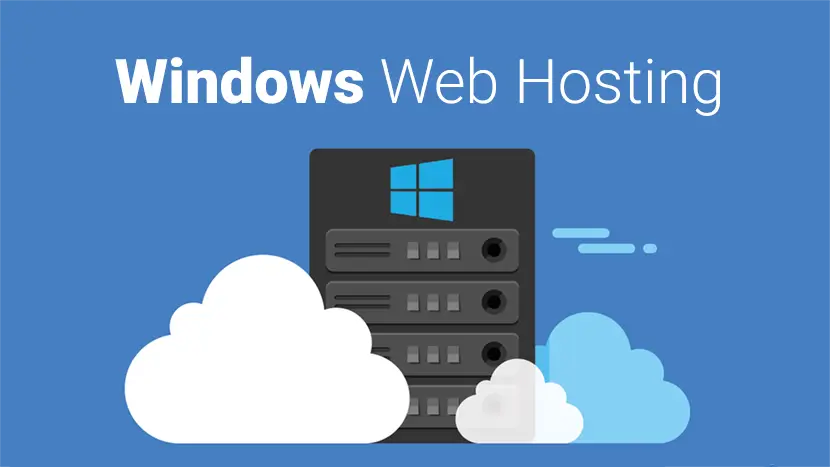
What is Windows Web Hosting
The necessity of having a dynamic website with visually attractive elements has now become an essential factor for many individuals.

What is Shared Hosting
Shared hosting is a type of web hosting where a single physical server hosts multiple sites. Many users utilize the resources on a single server...

What is VPS Hosting
Learn what VPS hosting is and how it works. Virtual server comparison to other web hosting platforms included.
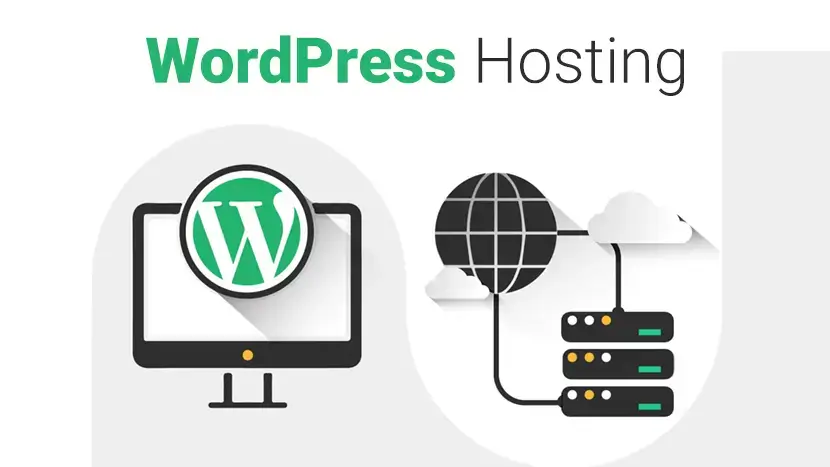
What is WordPress Hosting
Learn about WordPress hosting, one of the most popular website platforms today. Discover the features and benefits of a WordPress website.
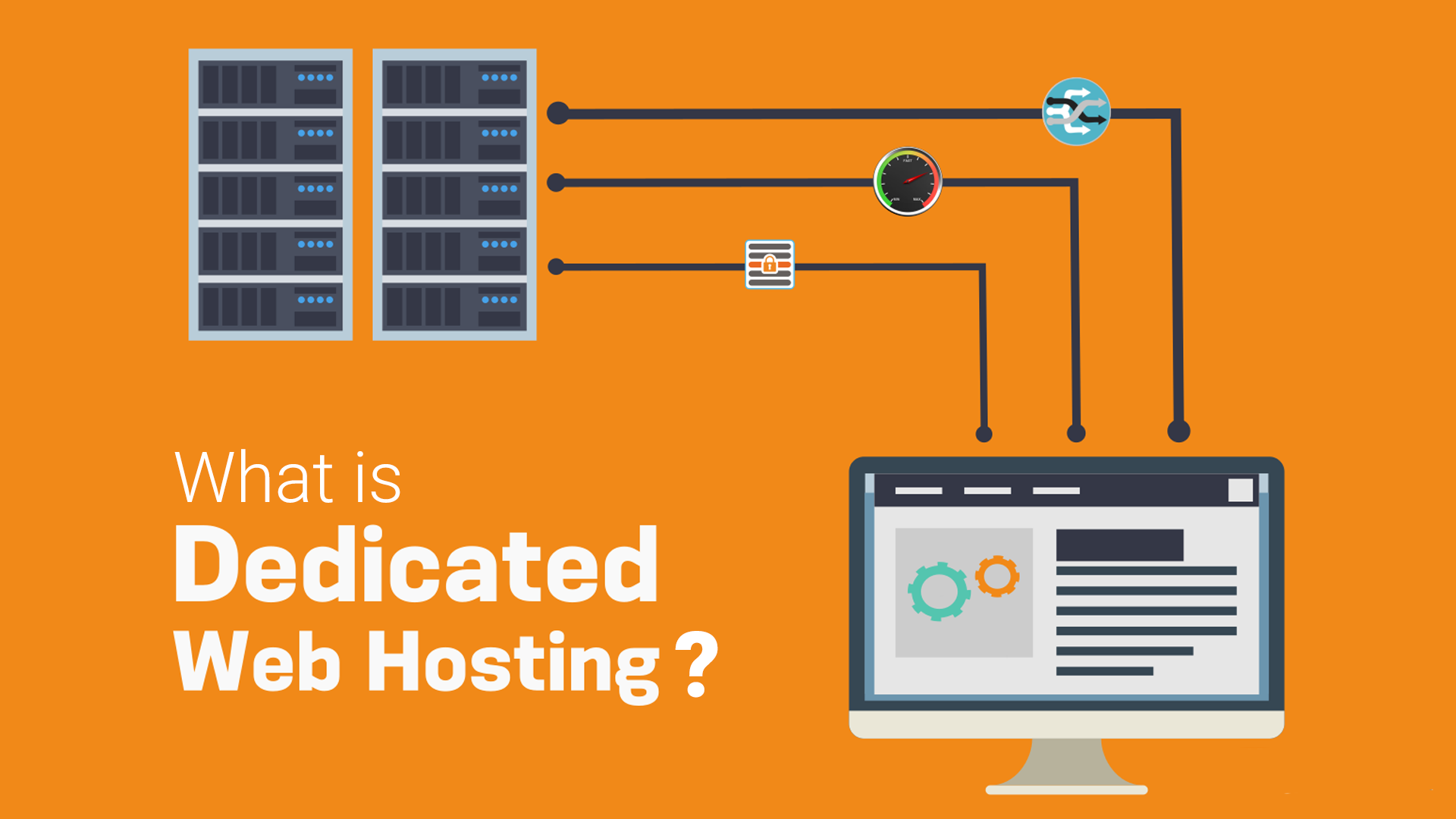
What is Dedicated Hosting
Dedicated hosting is a term used to describe web hosting packages that provide a dedicated server with dedicated resources to a single client.
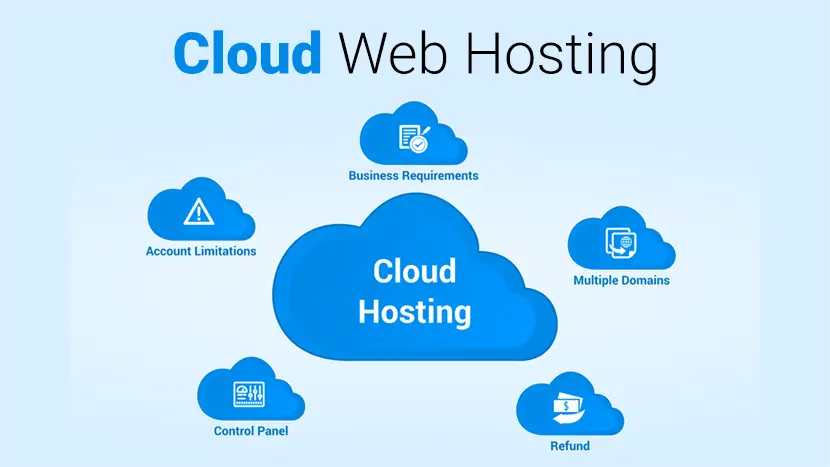
What is Cloud Hosting
Cloud hosting is a type of web hosting which uses multiple different servers to balance the load and maximize uptime. Instead of using a single server..

What is Reseller Hosting
Start your web hosting business with Reseller Hosting! Learn what it is, how it works, and why it's the best choice in this detailed guide.

What is Managed Hosting
Managed dedicated hosting is an IT service model where a customer leases dedicated hardware from a managed hosting services provider.

What is Colocation Hosting
Colocation hosting offers server housing at data centers, where clients own the servers while benefiting from secure space and reliable infrastructure.

What is Self Service Hosting
Self-service web hosting is done completely on your own. This is the most advanced web hosting. You need to have a place to rent that stores your server.

What is Cluster Hosting
Cluster hosting is sometimes confused with Cloud or Grid hosting. It is simply a group of servers that operate together and act as one “mega” server.

What is an IP Address
The internet and networks use the TCP/IP protocol as a means of communication for computers. Each of these computers must have a unique set of numbers...

What is a Domain Name
Are you looking for the best domain registrar to purchase a domain name? See our expert comparison of the best domain registrars.

What is SSL certificate
SSL stands for Secure Sockets Layer. An SSL certificate encrypts all connections that are made to and from your web server, which means...
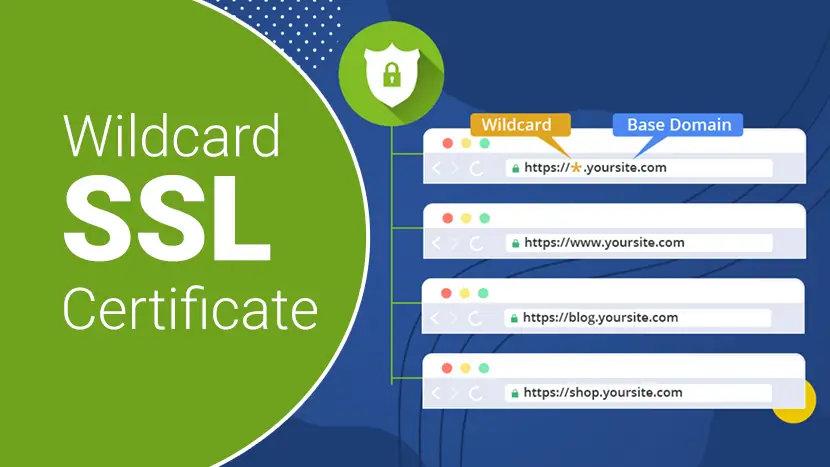
Wildcard SSL Certificates
Wildcard SSL certificates offer essential protection for multiple subdomains under the same primary domain, simplifying security with a single certificate.
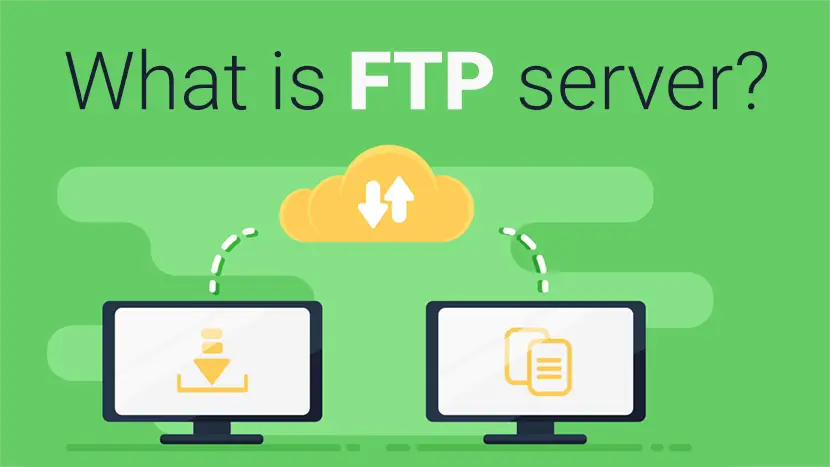
What is FTP
FTP (File Transfer Protocol) allows easy file transfer between computers. Essential for website development, ensuring smooth file management.

What does dot com stand for
In order to understand the meaning of .com, you must learn a few basics. First understand that the .com comes at the end of the webmaster’s domain name...
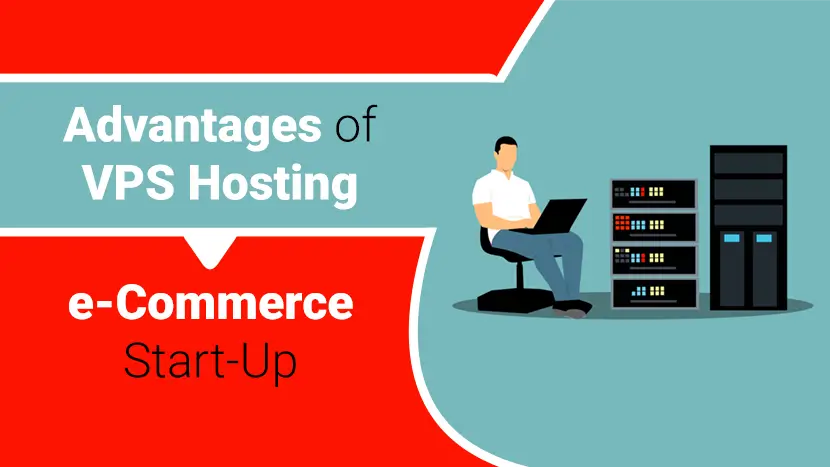
Advantages of VPS Hosting for E-Commerce Start-Up
Your e-commerce business is ready to go to the next level, but you aren't sure if you should continue with your shared hosting account or upgrade to ...

Best FREE Web Hosting
Although they are not ideal for all sites, knowing the best free website hosting providers can come in handy. Here are 17 of the top picks!

Secure Online Payment
Discover top 10 practices for secure online payment processing, ensuring the safety and protection of your transactions. Enhance trust and peace of mind.

Considerations for Choosing the Best Web Hosting Service
Discover the perfect web hosting with our guide! 10 key factors to consider for the best service. Speed, security, support, and more. Start strong online!

Domains vs Hosting vs Website
Learn the key differences between domains, hosting, and websites. Simplify your online journey with a clear understanding of each element.

Why Elementor Makes Managed Cloud VPS Hosting the Ultimate Choice for Your Website
Discover why Elementor's managed cloud VPS hosting offers unmatched speed, security, and flexibility. Elevate your website's performance today!

Unlocking the Power of Windows VPS Affordable Options Revealed
Unlock the potential of Windows VPS with our guide to affordable options. Discover cost-effective solutions for enhanced performance and reliability.

Web Hosting Services in Dubai A Comprehensive Comparison
Explore a comprehensive comparison of web hosting services in Dubai. Find the best options for reliability, performance, and affordability.

Black Friday Web Hosting Deals A Comprehensive Guide
Find the best Black Friday web hosting deals in our comprehensive guide. Compare top offers to save big on hosting this season.

Boost Your Website with ReactJS Hosting
Boost your website with ReactJS hosting! Discover why it matters for speed, security, and scalability. Optimize performance and enhance user experience today!

Reseller Hosting for Small Businesses
Best reseller hosting for small businesses! Explore top picks, key features, and expert insights to grow your hosting business with ease.

Best Web Hosting in UK
Best web hosting in the UK? Explore critical factors like speed, security, uptime, and support to find the perfect hosting solution for your needs!

How Full Access to Your Virtual Private Server Improves Performance
Gain full control of your Virtual Private Server (VPS) to boost speed, enhance security, optimize resources, and tailor performance to your needs.

Reliable Hosting
How reliable hosting enhances website performance, ensures uptime, and supports long-term online business growth and digital success.





